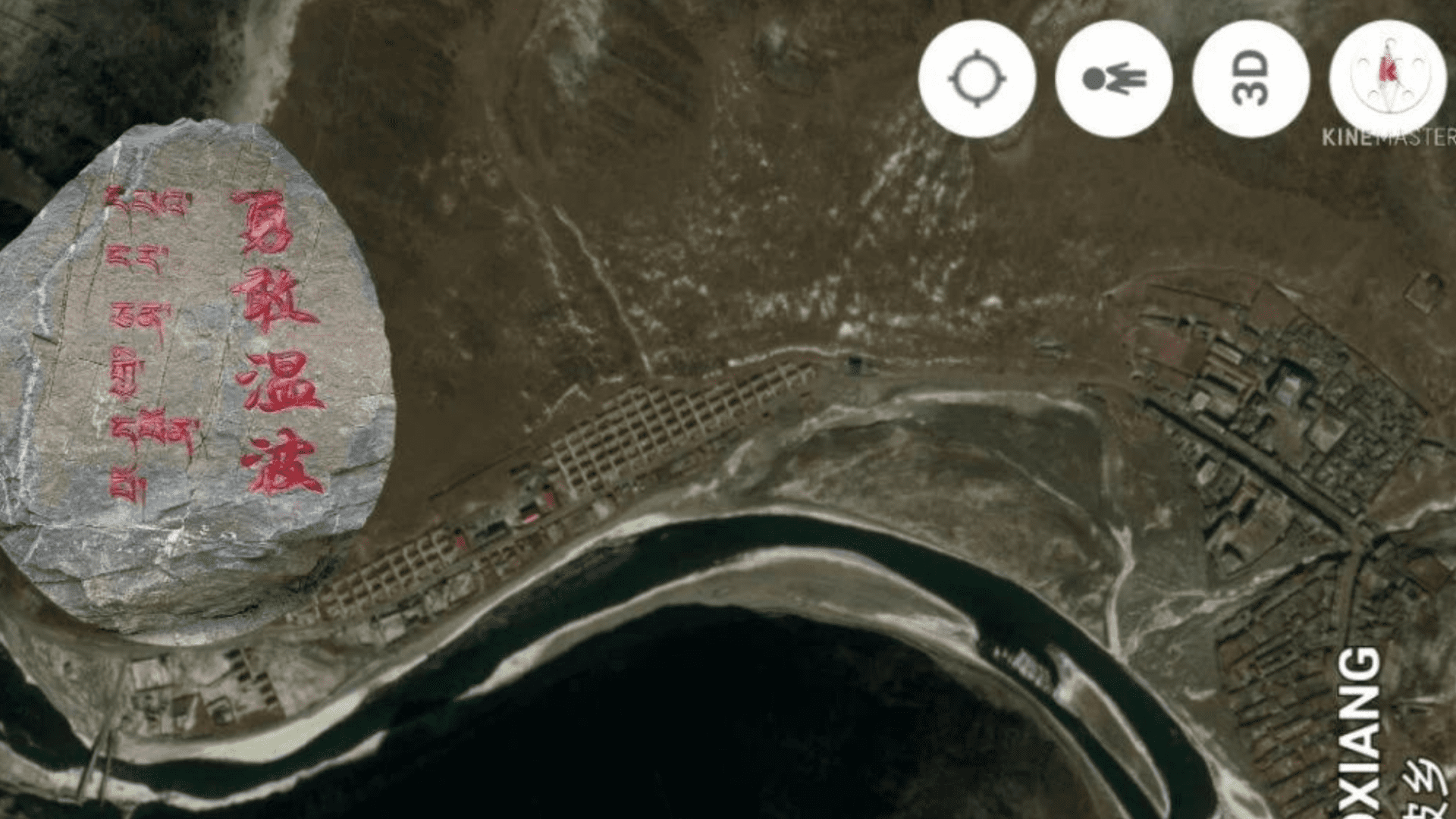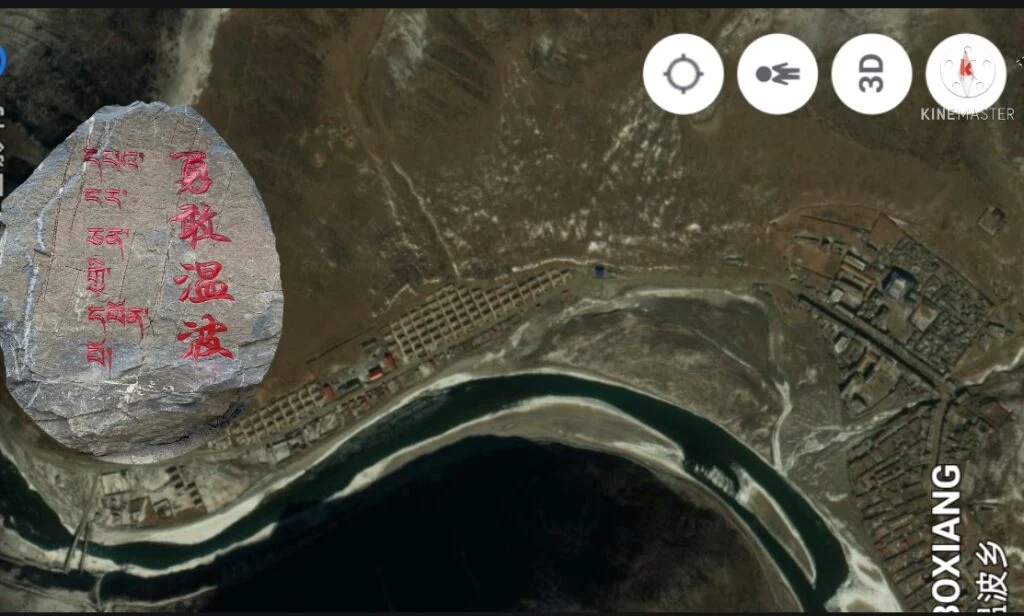
Dza Wonpo: Over 100 Tibetan Detainees Released After Month-long Torture and Interrogation
Three still remain in detention while a stone memorial honouring resistance to the 1959 invasion found to be destroyed
Tibet Watch reported that at least 117 Tibetans from Dza Wonpo Township detained en masse were released one by one from 23 September onwards. The detainees, who had been held in Sershul County Detention Centre since late August, were subjected to a month-long interrogation, torture, political re-education and march-past drills by Chinese authorities.
Despite these releases, three monks who were arrested on 3 September, still remain in detention. One of them, rearrested on 26 September, was amongst the four released from the at least 121 arrested, the source confirmed.

Stone memorial, meaning ‘Courageous Wonpos’
Upon the release of the 117 detainees, a stone memorial honouring the history of local Tibetan freedom fighters was found to be destroyed. Several officials elected in 2020 had already issued orders for it to be destroyed but it had remained in place until late September this year, having been previously granted authorisation from higher offices in 2016 when it was built. It is located in the vicinity of Dza Wonpo Monastery, Gaden Shedrub Dhargye Ling, where local Tibetans killed many soldiers of the People’s Liberation Army during their invasion in 1959. The source explained that the memorial was built at the request of local Tibetans who strongly identify themselves with its engraving, “Courageous/Indomitable Wonpos’. It was installed at a time when the construction of highway, bridge and dam was underway in the region.
A township of around 3,000 residents, and with 350 monks enrolled at the local monastery, Dza Wonpo is located in Sershul County of Tibetan Autonomous Prefecture, Sichuan Province, in the Tibetan province of Kham.
The source condemned the mass arrests and explained “Those detained in the last month have not committed any crime. Whatever charges they have been labelled is completely based on the authority’s whims and definition. There is no way to secure justice through a legal system that is completely controlled by the government.”
During the month-long detention, not only were the detainees interrogated repeatedly, but also forced to undergo political reeducation training and were tortured.
Detainees were given a list of orders to follow: to be patriotic, to abide by the laws of the nation, not to engage in separatist activities and splitting the nation, not to keep any image of the Dalai Lama and disconnect from Tibetans living in exile outside Tibet, whom the Chinese authorities have long labelled as the “Dalai clique”.
Those who failed to comply with the political reeducation, such as those unable to follow the authorities in reciting the policy and goals of the Chinese Communist Party, were beaten.
The entire town of Dza Wonpo was given the same instructions and a complete ban was issued against starting any online chat groups promoting the preservation of Tibetan language, protection of the environment and voluntary social services. Authorities stated that if any such groups were necessary, a Chinese Communist Party member would need to be in the group. In addition, all the villagers were forced to sign an assurance letter promising they would abide by the pre-existing policy of not enrolling children below 18 years in the monastery.
The anonymous local source who sent information to Tibet Watch criticised the restrictions, including the closure of a local association to preserve the Tibetan language, stating: “The forced closure of chat group like “Association for Voluntary Service of Tibetan language” that works for the protection and preservation of Tibetan language is a huge loss to Tibetans. It deprives illiterate adults in the village of the opportunity to learn the Tibetan language”.
Information supplied by Tibet Watch

